Mental health conversations are often simplified to quick fixes—especially medication. For anyone who’s struggled with depression, anxiety, or another mental health issue, the idea of a pill offering immediate relief can seem deeply comforting. Yet many who rely solely on medication find themselves wondering why relief doesn’t always last. You might wonder: If medication changes brain chemistry, shouldn’t that be enough? The answer isn’t straightforward, because mental health isn’t straightforward. Medication plays a crucial role, but genuine healing often requires more than pharmacology. It needs connection, support, strategies, and lifestyle changes. Let’s break down why medication, though necessary, typically needs a broader, more holistic psychiatric treatment to achieve lasting mental wellness.
The Limits of Medication: Why Pills Alone Can’t Solve Everything
Medication helps balance neurotransmitters, influencing mood and emotional responses. For many, psychiatric medication management provides essential stabilization, particularly in acute situations or severe mental health conditions. Yet medication alone often overlooks fundamental underlying issues, such as persistent negative thought patterns, traumatic experiences, or chronic stressors.
Think of medication as treating symptoms, much like taking a painkiller for chronic pain. The immediate relief is valuable, but without addressing the root cause—whether that’s lifestyle, trauma, or ongoing stress—those symptoms tend to return, leaving individuals feeling frustrated and defeated.
Medication vs. Therapy for Mental Health: What’s the Difference?
There’s a common debate: medication vs. therapy for mental health. While medication addresses biological components of mental health issues, therapy targets psychological and behavioral aspects. Therapeutic methods like Cognitive Behavioral Therapy (CBT), Interpersonal Therapy (IPT), or Motivational Interviewing (MI) equip individuals with practical tools to manage symptoms beyond what medication alone can achieve.
Therapy explores how thoughts, feelings, and behaviors interact. It teaches people coping mechanisms, resilience-building, and emotional regulation—skills that become ingrained over time. Medication, conversely, doesn’t inherently teach coping skills. It manages symptoms chemically, but without therapy, individuals may never gain the skills needed to navigate future emotional challenges effectively.
Does Therapy Work Without Medication?
A frequent question arises: Can therapy alone effectively treat mental health conditions? The short answer: yes, sometimes. For mild-to-moderate anxiety or situational depression, therapy alone can lead to remarkable improvements. Therapy teaches tools to manage stress, address past traumas, and change negative thought patterns.
However, in many cases, especially those involving severe anxiety, bipolar disorder, major depressive disorder, PTSD, or certain personality disorders, therapy alone might not be sufficient initially. Medication can provide the necessary stabilization to allow therapy to become more effective. This combined approach offers a balanced path toward wellness.
Psychiatric Medication Management: Finding the Right Balance
Effective psychiatric medication management involves regularly reviewing its effectiveness, adjusting dosages appropriately, and ensuring the least amount of medication necessary to achieve desired results.
A skilled psychiatric provider evaluates your response to medication over time. This isn’t a “set it and forget it” method. Instead, it’s continuous monitoring and adjusting doses to maximize effectiveness while minimizing side effects. Good medication management supports therapy by creating stability and allowing patients to fully engage in therapeutic strategies.
Why a Holistic Psychiatric Treatment Approach Is the Best Approach to Mental Wellness
The phrase best approach to mental wellness captures exactly what holistic psychiatric treatment aims to offer. It’s a thoughtful integration of both, alongside lifestyle adjustments and personalized self-care routines.
Holistic psychiatric treatment considers every factor affecting mental health: emotional, physical, environmental, and social. This integrative care means providers don’t rely solely on psychiatric medication management. Instead, they prioritize therapy, mindfulness, nutrition, sleep quality, exercise, social support systems, and even nature-inspired therapeutic practices to nurture mental wellness comprehensively.
Does Therapy Work Without Medication? Sometimes, But Here’s Why Integration Matters
Therapy without medication certainly works in various scenarios—especially for milder mental health conditions. Therapy alone helps many individuals discover lifelong coping skills that reshape their emotional health positively.
Yet, considering the severity of specific psychiatric disorders, a purely therapeutic approach may not always be sufficient. Conditions like bipolar disorder, severe depression, or chronic anxiety often require medication to stabilize moods or thoughts enough for therapy to become genuinely effective. Therefore, integrating medication and treatment, rather than viewing them separately, offers the best approach to mental wellness.
The Human Factor: Why Holistic Psychiatric Treatment Feels Different
A holistic psychiatric treatment is deeply human. It involves building trust and a therapeutic relationship where patients feel genuinely heard, understood, and valued.
A holistic practitioner doesn’t view someone merely as a symptom needing medication. Instead, they see each person as unique, complex, and deserving of tailored care. This compassionate approach enhances trust, reduces stigma, and ensures that treatment feels supportive rather than clinical.
Does Therapy Work Without Medication? Knowing When It Can
Therapy alone can work incredibly well in certain scenarios, such as mild-to-moderate anxiety, mild depression, situational stressors, relationship issues, and emotional distress. In these situations, therapy often equips individuals with lasting skills without needing medication.
Yet, therapy alone may face limits if the issue involves biological or chemical imbalances severe enough to significantly disrupt daily functioning. Here, the role of medication becomes crucial to stabilize the situation and allow therapy to become fully effective.
Achieving Sustainable Mental Health: A Holistic Psychiatric Treatment
The holistic psychiatric treatment combines the immediate symptom relief offered by medication with therapy’s long-term, empowering strategies. This combined approach addresses the root causes and provides the necessary skills to manage symptoms sustainably.
When individuals learn to cope, heal, and manage their mental health from various angles—not just chemical—they achieve true, lasting mental wellness. This holistic method ensures improvements are lasting, meaningful, and deeply personal.
Conclusion: Embracing a Comprehensive Approach
Mental wellness demands a personalized, integrated strategy. Medication provides vital relief, therapy teaches lifelong skills, and holistic psychiatric treatment bridges the gap. By acknowledging the strengths and limits of medication and therapy, we can craft a tailored path toward genuine, lasting mental wellness.
At Breath of Life Mental Health and Wellness, we deeply understand the importance of holistic care. If you or someone you care about is navigating mental health challenges, our team is here to offer compassionate, integrated care tailored to your needs, lifestyle, and personal goals. Reach out today to start your personalized path toward wellness.



